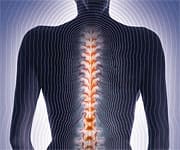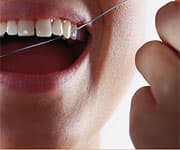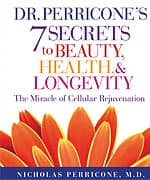Life Extension Magazine®
As the mind-body connection has become accepted in mainstream medicine, an entirely new branch of medicine has emerged, known as psychoneuroimmunology. In true holistic fashion, this exciting new area of research brings together knowledge from multiple fields of study in endocrinology, immunology, psychology, neurology, and other fields. Psychoneuroimmunology integrates the systems of the body and allows us to recognize that cellular rejuvenation can take part on all levels of the mind and body. Perhaps most important, we can learn to control negative emotions and thought processes that upset the delicate balance of health and well-being. Reprinted with permission from Dr. Perricone’s 7 Secrets to Beauty, Health, and Longevity: The Miracle of Cellular Rejuvenation (Ballantine Books, 2006). Setting Stress in MotionTo understand how the mind directly impacts the body, we need to have a little background. Organs that produce hormones are called endocrine glands. (While the brain and kidneys also produce hormones, they are not considered endocrine organs, since this is a minor part of their function.) In Greek, hormone means “to set in motion”; hormones are made by endocrine glands to control or set in motion another part of the body. The endocrine system works hand in hand with the nervous system. In fact, the endocrine and nervous systems are so closely linked that they are more accurately viewed as a single neuroendocrine system, which performs several critical tasks:
The neuroendocrine system is designed to help ensure each individual’s safety from external or internal threats, and the hormones most responsible for this task are called “stress hormones.”
The Stress HormonesI have written extensively about the hormones insulin and cortisol, also known as the death hormones. Both of these hormones are necessary for good health, but when their levels are elevated, they cause serious damage, including diseases such as diabetes and obesity. Stress hormones are important—they can give us the extra burst of energy needed to get out of the way of an oncoming automobile or other impending deadly threat. However, in today’s world, they are called into play too often, placing the neuroendocrine system under particular strain. The physical ramifications of negative emotions are alarming and far reaching. And while caregivers appear to be at particular risk, none of us is immune to stress and its effects. Cell phones, email, and other technological gadgets ensure that we almost never have a minute’s peace to unwind and lower our stress levels. At elevated levels, insulin and cortisol are inflammatory agents. Many of us suffer an excess of both of these hormones, the first from too many sugars and other carbohydrates in our diets, the second from too much stress and caffeine. Fortunately, we can modify our behavior to eliminate their negative effects. Giving up sugars and starchy foods will help keep our insulin levels normal. Eliminating coffee will help control our cortisol. A study conducted at Duke University found that the effects of morning coffee consumption can exaggerate the body’s stress responses and increase stress hormone levels all day long and into the evening. This is a high price to pay for that morning jolt to our systems. Stress can affect us even at the very beginning of our lives. According to the Wall Street Journal, recent studies show that women who experience high levels of stress or anxiety during pregnancy increase their risk for delivering prematurely or delivering infants with low birth weights or other health problems, including respiratory and developmental complications. In addition, maternal stress during pregnancy is believed to affect the formation of the important hypothalamic-pituitary-adrenal (HPA) axis. A major part of the neuroendocrine system, the HPA axis controls reactions to stress and plays an important role in the regulation of body processes, including digestion, immunity, and energy use. There is also increasing evidence that suggests that the detrimental effects of glucocorticoid (GC) hypersecretion (overproduction of steroids), which occurs when the HPA axis is activated, results in a number of diseases, including obesity, Alzheimer’s, AIDS, dementia, and depression. Fortunately, there are some targeted nutritional supplements, described later in this article, that can help keep the all-important HPA axis in balance. How Cells Get Old Before Their TimeWe all know that dealing with heavy stress can make us feel older than we really are. But a recent study at the University of California at San Francisco suggests that it isn’t just a feeling—stress actually accelerates the rate at which cells age. It’s an established fact that stress precipitates premature aging, but until recently, the exact mechanism of how this occurs has been unclear. According to this study, stress affects telomeres, strips of DNA at the end of chromosomes, which appear to protect and stabilize the chromosome ends. (A chromosome is a threadlike structure of DNA and associated proteins that is found in the nucleus of a cell.) Chromosomes carry genetic information in the form of genes. These key pieces of DNA are also involved in regulating cell division. Each time the cell divides, the telomere shortens, until eventually there is nothing left, making cell division less reliable and increasing the risk of age-related disorders.
Scientists took blood samples of 58 premenopausal women to carry out DNA analysis of telomeres. They also measured levels of an enzyme called telomerase, which helps build and maintain telomeres in immune cells. Nineteen of the women in the study had healthy children and the rest had children with chronic illnesses. Being a caregiver is a highly stressful situation, and it was not surprising when the researchers discovered that women who had reported higher levels of psychological stress—those who were caring for sick children—had shorter telomeres. In fact, the difference was equivalent to more than a decade of additional aging when compared with the women who had lower stress levels. The high-stress group also had lower levels of telomerase in their immune cells. According to Elissa Epel, PhD, leader of the research team, this finding implied that the immune cells would not function as well and could die sooner. It was also found that the high-stress women had greater levels of oxidative stress—cumulative damage caused by free radicals. Laboratory studies have confirmed that oxidative stress speeds up the shortening of the telomeres. The researchers further stated that it was not clear exactly how stress affected telomeres, but they suggest that changes in stress hormone levels could have an effect. Stress Has TeethIt isn’t just mothers of children with chronic illness who experience high levels of stress-related health problems. A fascinating study published in the journal Psychosomatic Medicine found that caregiver spouses of patients with Alzheimer’s disease develop gingivitis, an inflammatory gum disease, at twice the rate of their noncaregiver counterparts. Since there was little difference in oral hygiene between the two groups in the study, the researchers believe the difference might have been related to stress. (The authors of the study also note that the relationship between chronic stress and severe gum disease was first noticed in soldiers in the trenches during World War I, hence the rather graphic term trench mouth.) Gum disease is serious enough in and of itself. It can lead to serious bone destruction and tooth loss. But as we will find out, it may also precipitate serious life-threatening diseases. Lead investigator Peter Vitaliano, PhD, of the University of Washington School of Medicine in Seattle, stated: “On a practical level, [the study’s results] speak to relationships between chronic stress and oral health in the general population and suggest that these are independent of oral care. They show that caregivers are at risk for oral health problems and not just physical health problems.” The investigators not only evaluated the subjects’ gum disease but also measured the key components of metabolic syndrome:
The caregiver spouses scored higher on all three of these measures, placing them at great risk for type II diabetes.
| ||||||
Our Immune System: The Key to Cellular Rejuvenation of the BrainNew research shows that immune cells contribute to maintaining the brain’s ability to preserve cognitive ability and cell renewal throughout life. It has been generally accepted, until recently, that each individual is born with a fixed number of nerve cells in the brain. As these cells gradually degenerate and die during the person’s lifetime, they cannot be replaced. This is especially alarming when we realize that chronically high levels of stress-induced cortisol, so common in the world of today, cause the brain to shrink. However, this theory was disproved when researchers discovered that certain areas of the adult brain do retain their ability to support and promote cell renewal (neurogenesis) throughout life, especially under conditions of mental stimuli and physical activity. The hippocampus, which supports certain memory functions, is one such area. A team of scientists, led by Professor Michal Schwartz of the Neurobiology Department of the Weizmann Institute of Science in Rehovot, Israel, one of the world’s top-ranking multidisciplinary research institutions, has come up with new findings that may have implications in delaying and slowing down cognitive deterioration in old age. These findings showed that the primary role of the immune system’s T-cells (white blood cells responsible for the body’s immunity) is to enable areas of the brain such as the hippocampus to form new nerve cells and maintain cognitive function. We still don’t know how the body delivers the message instructing the brain to step up its formation of new cells. However, animal studies have shown that exposure to an environment rich with mental stimulations and opportunities for physical activity led to increased formation of new nerve cells in the hippocampus. (As with muscle, it appears that the phrase “use it or lose it” also applies to brain power.) When the scientists experimented with mice that lacked T-cells and other important immune cells, significantly fewer new cells were formed. According to Professor Schwartz, “These findings give a new meaning to ‘a healthy mind in a healthy body.’ They show that we rely on our immune system to maintain brain functionality, and so they open up exciting new prospects for the treatment of cognitive loss.” Knowing that the immune system contributes to the renewal of nerve cells has potentially great significance for aging populations because aging itself is associated with a decrease in immune system function. Aging is also associated with a decrease in memory skills and the formation of new brain cells. Therefore, by manipulating and boosting the immune system, it might be possible to prevent or at least slow down age-related loss of memory and learning abilities.
Stress and CholesterolPrevious studies have established that stress is linked to increased heart rate and weakened immune systems. Now researchers have discovered that elevated stress levels appear to raise cholesterol levels over the long term. This is alarming because elevated cholesterol is a risk factor for heart and circulatory disease, the number-one killer of both men and women in the United States. A team of researchers, led by Professor Andrew Steptoe from University College London, put forth three hypotheses on how stress increases cholesterol levels:
Stress-Fighting SupplementsThe Life Extension Foundation has compiled the latest news and research on targeted nutritional supplements and herbal adaptogens than can, along with exercise and meditation, help many individuals manage stress-filled lives. The following supplements may help keep the HPA axis in equilibrium, reduce elevated cortisol levels, and help optimize health. Vitamin CAlong with its beneficial effects as a connective tissue regenerator and in maintaining proper immune system function, vitamin C has been shown to help modulate high levels of cortisol brought about by stress. A study in 2001 examined the effects of supplemental vitamin C on high cortisol levels brought about by physical stress in marathon runners. In a randomized, placebo-controlled study, ultramarathon runners were given 500 mg a day of vitamin C, 1500 mg a day of vitamin C, or a placebo seven days before a marathon, the day of the race, and two days after the race. Researchers found that athletes who took 1500 mg per day of vitamin C had significantly lower post-race cortisol levels then those taking either 500 mg a day or placebo. Another study published in the journal Psychopharmacology reviewed evidence showing that vitamin C can reduce high cortisol levels brought about by psychologically induced stress. In a randomized, double-blind, placebo-controlled trial, researchers gave 3000 mg per day of vitamin C or a placebo to 120 volunteers who were subjected to psychological stress through the Trier Social Stress Test (TSST), which consists of 15 minutes of psychological stress induced via a mock job interview, followed by a mental arithmetic challenge. Subjects who took vitamin C had lower blood pressure, subjective stress, and cortisol measures compared to those who were given placebo. Recommended dosage: 1000-3000 mg per day.
Omega-3 Fish OilIn a number of clinical tests, fish oil has been shown to reduce cardiovascular risk in women and men. Now, preliminary research has shown that fish oil may also help individuals cope with psychological stress and lower their cortisol levels. In a study published in 2003, researchers gave seven study volunteers 7.2 grams per day of fish oil for three weeks and then subjected them to a battery of mental stress tests. Blood tests showed that these psychological stressors elicited changes in the subjects’ heart rate, blood pressure, and cortisol levels. After three weeks of fish oil supplementation, however, the rise in cortisol levels secondary to stress testing was significantly blunted, leading the authors to conclude that supplementation with omega-3 fatty acids from fish oil “inhibits the adrenal activation elicited by a mental stress, presumably through effects exerted at the level of the central nervous system.” Thanks to a flood of research published in recent years, we now know that the omega-3 essential fatty acids in fish help prevent or ameliorate a wide range of mental disorders and disturbances, ranging from depression, bipolar disorder, and Alzheimer’s disease to aggression, memory loss, and learning difficulties. In fact, it appears clear that these and many other conditions result from or are exacerbated by America’s dietary deficiencies of omega-3s, and not solely from environmental or genetic risk factors. Now, the results of a new clinical study add to existing evidence indicating a close connection between low intake of omega-3s and angry, aggressive behavior. Emerging clinical evidence—including landmark studies funded by the National Institutes of Health—suggests that low dietary levels of omega-3s—specifically, the omega-3 fats EPA (eicosapentaenoic acid) and DHA (docosahexaenoic acid), which are found only in fish and marine organisms—promote anger, depression, and aggression. The good news is that the preponderance of available clinical evidence shows that taking supplemental marine omega-3s may help alleviate all of these psychological disorders. The study in question took place at a Veterans Administration facility in Brooklyn, New York, and involved 24 male outpatients with a history of substance abuse and aggressive behaviors. The subjects were randomly assigned to two groups: one receiving 3 grams (five capsules) per day of purified fish oil containing 2250 mg of EPA, 500 mg of DHA, and 250 mg of other omega-3 EFAs. The second group received a placebo. The 13 patients who received the fish oil enjoyed a significant and ongoing decrease in their anger scores on psychological tests. Unfortunately the average American is woefully deficient in these miracle fats. We have long known that “type A” personalities run a significantly greater risk of stroke and heart attack, and the possibility that low levels of the omega-3s may be an important contributing factor offers new hope for the proverbial hothead. Just the simple addition of high-quality fish and fish oil capsules taken daily may help alleviate many of these unwanted feelings and behaviors. It might seem hard to believe that something as simple as a few meals of fish or capsules of fish oil could confer such huge health and cosmetic benefits. But the available evidence indicates that humans evolved and thrived on diets high in omega-3-rich seafood, which is why marine omega-3 fatty acids make up much of the fat in our brain cell membranes, and are such critically important anti-aging nutrients and agents of good mental health. It well may be that our depressed, overweight society—plagued by inflammatory “lifestyle diseases” such as arteriosclerosis, diabetes, Alzheimer’s, and cancer—is suffering unnecessarily. Never before in human history have diets been so low in omega-3 fatty acids and so high in inflammatory omega-6 fatty acids. In fact, it is estimated that omega-3 intake has dropped by about half over the past 50 years, while intake of inflammatory, cancer-promoting omega-6 fats has risen even more sharply. This is a preventive-health disaster of epic proportions. This crucial imbalance needs to be rectified if we are to regain and maintain optimal mental, physical, and emotional health. To redress this fatty acid imbalance, you need to take two simple steps: First, cut way back on omega-6-rich vegetable oils (corn, soy, canola, safflower, etc.)—which are abundant in most processed, frozen, and fast foods—and switch to heart-healthy extra-virgin olive oil, which is high in non-inflammatory monounsaturated fats and potent anti-inflammatory antioxidants. Second, add fatty cold-water fish such as wild salmon, sardines, anchovies, trout, sablefish, and herring to your diet at least three times per week and take fish oil capsules daily. Recommended dosage: 1-4 grams per day. | ||
PhosphatidylserineAnother supplement that has been shown to be useful in combating the deleterious effects of stress is phosphatidylserine. This phospholipid (any of a variety of phosphorous-containing fats) constitutes an essential part of the cellular membrane. Beginning in the 1990s, studies showed that phosphatidylserine can cut elevated cortisol levels induced by mental and physical stress. In one early study, 800 mg per day given to healthy men significantly blunted the rise in cortisol caused by physical stress. Another article reported that even small amounts of supplemental phosphatidylserine (50-75 mg administered intravenously) could reduce the amount of cortisol responding to the physical stressors. In that study, eight healthy men had their blood drawn before and after physical stress induced by riding a bicycle ergometer (a stationary bike). While all subjects showed increased cortisol levels, pretreatment with the 50- or 75-mg dose of phosphatidylserine significantly diminished the cortisol response to the physical stressor.
Finally, a study published in 2004 examined phosphatidylserine’s effects on endocrine and psychological responses to mental stress, using the Trier Social Stress Test described earlier. This double-blind study followed 40 men and 40 women, aged 20-45, for three weeks. The subjects were given either phosphatidylserine (either 400 or 600 mg daily) or a placebo before taking the Trier Social Stress Test. Phosphatidylserine was effective in blunting the cortisol response to stressors, with those taking 400 mg daily (but not, surprisingly, 600 mg) of phosphatidylserine showing a significantly decreased cortisol response. The authors concluded that phosphatidylserine helped dampen the effects of stress on the pituitary-adrenal axis and may have a role in managing stress-related disorders. Recommended dosage: 300-800 mg per day. DHEAWhile cortisol levels stay the same or even increase as we age, levels of another vitally important hormone, DHEA, decrease with each passing year. This relationship between cortisol and DHEA has led some to suggest that these adrenal hormones may play a significant role in the aging process and its associated negative health effects. A recent paper in the European Journal of Endocrinology examined age-related changes in the HPA axis. The authors showed that the cortisol-to-DHEA ratio increases significantly as people age and is even higher in elderly patients who suffer from dementia. Supplemental DHEA, however, enhances the brain’s resistance to stress-mediated changes, maintains functional abilities, and protects against age-related diseases. The authors concluded, “The changes of the hormonal balance [between cortisol and DHEA] occurring in aging may contribute to the onset and progression of the aging-associated neurogenerative diseases.” Recommended dosage: 25-50 mg per day. Any hormone supplementation should be monitored by your physician; it is best to consult your physician before adding supplemental DHEA to your regimen to make sure that it is right for you. Adapting with Herbal AdaptogensPlant-derived adaptogens can be very useful in combating the mental and physical rigors of our modern lifestyle. Adaptogens work by modulating the levels and activity of hormones and brain neurochemicals that affect everything from cardiac activity to pain perception. The following three adaptogens have proven to be particularly effective stress relievers: • Rhodiola rosea: This herb, also known as golden root and Arctic root, has been used for centuries in traditional Asian and European medicine and is revered for its ability to increase resistance to a variety of chemical, biological, and physical stressors. It remains a popular plant today in traditional medical systems in eastern Europe and Asia but is lesser known in the United States. Studies in cell cultures, animals, and humans have revealed Rhodiola’s many remarkable benefits: It fights fatigue and stress, it enhances immunity and protects against cancer, and it even protects against the damaging effects of oxygen deprivation.
Multiple studies from the former Soviet Union have demonstrated Rhodiola’s effectiveness in combating both physically and psychologically stressful conditions. One study in particular demonstrated Rhodiola’s amazing ability to significantly reduce stress in a single dose. This study was unique in that it examined the effects of a single-dose application of adaptogens for use in situations that require a rapid response to tension or to a stressful situation. They found that Rhodiola was extremely effective in controlling stress generated by the part of the stress system known as the sympathoadrenal system. This is significant because, as the study points out, the traditional stimulant drugs used for controlling this stress have the potential to become addictive. Users often develop a tolerance, making it necessary for them to take larger and larger doses of the drug. This behavior can easily lead to unintentional drug abuse, have a negative effect on sleep structure, and cause rebound hypersomnolence or come-down effects. Not only does Rhodiola produce no negative side effects, but it also effectively increases both mental and physical performance. Put simply, Rhodiola prevents adrenal burnout and all of the negative ramifications that arise from adrenal depletion, which can occur from excessive long-term stress, insufficient sleep, insufficient consumption of protein, insufficient consumption of vitamin C, overuse of caffeine and other stimulants, high intake of sugary or starchy foods, chronic illness, and so on. Chronic stress is the worst culprit in adrenal depletion. Many studies indicate that Rhodiola is useful as a therapy in conditions such as decline in work performance, sleep disturbances, poor appetite, irritability, hypertension, headaches, and fatigue resulting from intense physical or intellectual strain, influenza and other viruses, and other illness. Recommended dosage: one 250-mg capsule of Rhodiola rosea root extract, standardized to 3% rosavins (7.5 mg) and 1% salidrosides (2.5 mg). • Ginseng: This herb has also been used throughout Asia since antiquity. It is important to note that ginseng is the name given to three different plants used as adaptogens. The most widely used is Panax ginseng, also known as Korean, Chinese, or Asian ginseng. Panax quinquefolium—or American ginseng—is also considered a “true” ginseng. However, Siberian ginseng (Eleutherococcus senticosus), while commonly referred to as ginseng, is not a true ginseng but a closely related plant. Yet no matter what the genus or species, all three of these plants have experimental evidence backing their adaptogenic claims. Animal studies have shown that ginsenosides, bioactive compounds in ginsengs, improve the sensitivity of the HPA axis to cortisol. In addition, studies suggest that all three plants provide protection against both physical and psychological stresses. • Ginkgo biloba: For the last 5,000 years, leaves of the ginkgo tree have been used to treat various medical conditions. While ginkgo is currently used to help combat the debilitating effects of memory decline and dementia, emerging evidence suggests that it may be useful in treating the impact of stress and elevated cortisol levels. A recent double-blind, placebo-controlled study published in the Journal of Physiology and Pharmacology examined ginkgo’s effects in modulating cortisol and blood pressure levels in 70 healthy male and female subjects. When subjected to physical and mental stressors, subjects who were given 120 mg per day of a standardized ginkgo extract saw smaller increases in their cortisol levels and blood pressure than did their counterparts who were given a placebo. Exercising Stress AwayIn addition to its influence on cellular rejuvenation and the mind-body balance, we now know about the powerful protective effect that exercise exerts over the stress hormones that threaten us with cellular degeneration.
Two forces are at work against us when we don’t get enough exercise. First is the fact that human beings were built to be in motion. We evolved as hunter-gatherers, not as couch-sitting television watchers. Our systems were meant to be used by a physically active body. When that body is constantly sedentary, our systems do not perform at peak capacity, and waste products are not eliminated as efficiently as they should be. The second force that is at work against us is our body’s natural fight-or-flight response. Our stress hormones were designed to help us defeat stressors in the form of physical threats to our safety or else run away from them. Today, our stressors are more often psychological than physical—but the production of stress hormones remains the same. They are not dissipated through fighting or fleeing; instead, they continue to circulate through the body, wreaking havoc on our cells. Regular exercise is the best way to remove these toxic by-products of the stress response. As long as it is not overdone, exercise relieves everyday stress, enhances immune system function, boosts circulation, and improves our ability to get a good night’s rest (of primary importance, since we know that most cellular repair takes place while we sleep). One other note on sleep: a fascinating study has recently been completed showing the importance of sleeping in total darkness for many health reasons, including breast cancer reduction. It was found that women who worked night shifts, such as nurses and flight attendants, had a 60% higher rate of breast cancer. The research, conducted at the National Cancer Institute and National Institute of Environmental Health Sciences, revealed a disquieting finding: Exposure to light during the hours of sleep appears to aggressively promote breast cancer by shutting off the production of melatonin, a hormone produced by the pineal gland. This hormone, which is naturally produced by the body during the hours of darkness, is known to be a strong immune system booster. Its presence also impedes the growth of cancer tumors by as much as 80%, according to research findings. We Have the PowerOne of the truly positive aspects of growing older is the wisdom and serenity it can bring to our lives. And with that wisdom and serenity comes the power and knowledge to ensure that the choices we make have our best interests at heart. When we are young we are reckless, taking our health for granted, burning the candle at both ends and making decisions that we later come to regret. We also feel that we have all the time in the world. By the time we reach our thirties, forties, and beyond, we realize that time is both precious and finite. We are now ready to take better control of our lives and focus on meaningful goals that are beneficial and for the long term.
Stress is very physical in its many manifestations, and what is described here is no doubt just the tip of the proverbial iceberg. We have learned just how “holistic” stress and negative emotion are—leaving no part of the body untouched. But we are not helpless, defenseless beings, subject to the whims and caprices of the world, slaves to mental and emotional stress. We have many teachers willing to provide the tools we need to maximize our physical and mental potential. Most of all, we need to realize and accept that we are powerful entities with great abilities to both create and destroy ourselves, our realities, and our universe. If the negative states of mind can do this much harm, might not learning how to de-stress and concentrate on positive thoughts and emotions be capable of producing great benefits? If this is true, and it is, then it stands to reason that reducing stress and learning to focus on positive emotion must hold the key to a brighter, happier, and healthier future for us all. It is up to us to light the way for the generations following in our footsteps. Nicholas Perricone, MD, is the #1 New York Times bestselling author of The Perricone Weight-Loss Diet, The Wrinkle Cure, The Perricone Prescription, and The Perricone Promise. He is a board-certified dermatologist, award-winning inventor, research scientist, and internationally renowned anti-aging expert. Visit the author’s website at www.nvperriconemd.com. |










